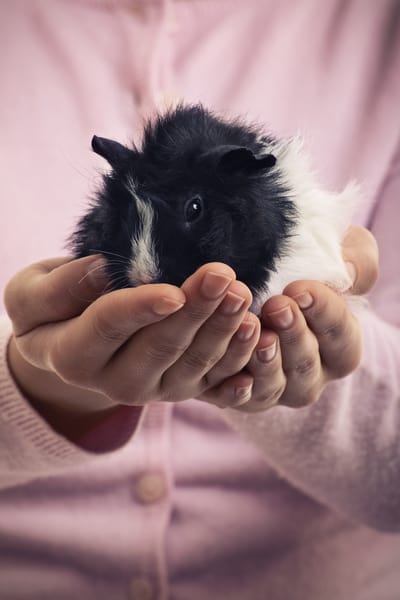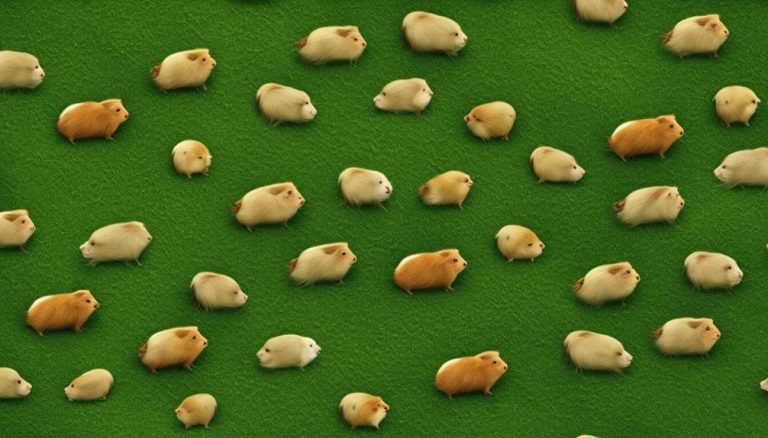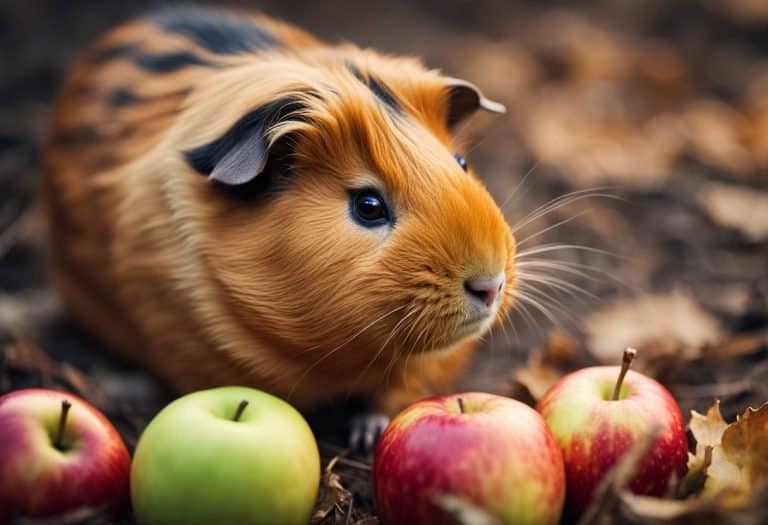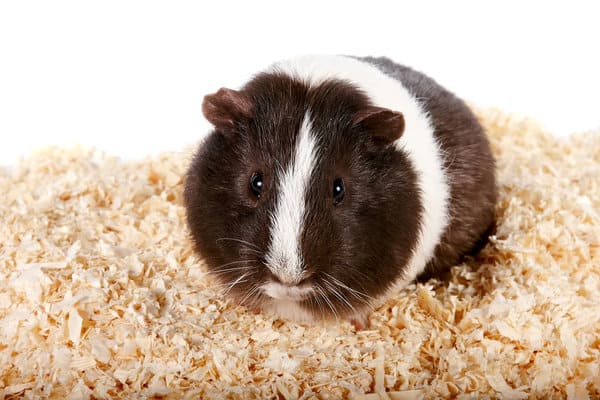Do Guinea Pigs Calm Down as They Get Older
As guinea pigs age, many owners notice that their once energetic and lively pet has become calmer and more subdued. While this is a natural part of the aging process, there are a few strategies that can help to keep an older guinea pig content and comfortable.
This article will explore the signs of aging in guinea pigs, the factors that affect their temperament, and how owners can help their aging pets remain at ease.
Key Takeaways
- Aging guinea pigs may show signs of calming down as they get older, such as increased need for rest and decreased socializing patterns.
- Providing a secure and comfortable environment, along with socializing with other animals and caregivers, can help calm older guinea pigs.
- Making diet changes to increase activity and energy levels, and providing plenty of toys and activities for mental stimulation, can also help calm older guinea pigs.
- Regular check-ups with a veterinarian and proper care can help prevent and manage the potential health concerns that aging guinea pigs may face.
Signs of Aging in Guinea Pigs
Signs of aging in guinea pigs can include physical changes, such as graying of fur and an increased need for rest. Additionally, as guinea pigs age, their socializing patterns may decrease and their dietary needs may change. For instance, older guinea pigs may be less active and require a diet that is higher in fiber and lower in fat and calories.
Additionally, they may require more frequent feedings, as well as additional supplements to meet their nutritional needs. As guinea pigs age, owners should be aware of any changes in their behavior or physical condition and adjust their care accordingly. Overall, guinea pigs can remain active and healthy well into their senior years with proper care and monitoring.
Factors That Affect Guinea Pig’s Temperament
The temperament of a guinea pig can vary depending on a variety of factors. One of the most significant influences is the amount of socialization they receive as a young animal.
Guinea pigs that are properly socialized and given ample time to form strong bonding behaviors with their owners or other guinea pigs tend to be more relaxed and easier to handle. On the other hand, guinea pigs that do not receive enough socialization can become more skittish and anxious.
Additionally, the quality of care they receive is also important in determining their temperament. Guinea pigs that are well-fed and in good health are more likely to be calm and trusting. Lastly, the amount of space they have to explore can also have an effect on their behavior. Guinea pigs that have plenty of room to roam and explore are generally more content.
Strategies to Help Calm an Older Guinea Pig
Providing a secure, comfortable environment for an older guinea pig can be an effective way to help reduce stress and promote feelings of calmness. Socializing with the guinea pig is also important as they age, as it allows them to form bonds with other animals and their caregivers.
Diet changes can also have a positive effect, as guinea pigs tend to become more active and energetic when they have access to a variety of foods. Additionally, providing plenty of toys and activities can provide mental stimulation and help keep them active.
Finally, ensuring the guinea pig is kept in an area free from loud noises and disturbances can help to reduce stress and create a calmer environment. By following these strategies, an older guinea pig can be kept in a calm and peaceful environment.
Potential Health Concerns in Aging Guinea Pigs
As guinea pigs age, they can be susceptible to a range of health concerns, including digestive problems, respiratory issues, and arthritis. Social interaction and environmental enrichment are important for preventing these types of problems, particularly as guinea pigs get older.
Regular check-ups with a veterinarian can also help catch any potential issues before they become more serious. Additionally, providing a healthy, balanced diet is key for ensuring a guinea pig stays healthy and active for as long as possible. Regular exercise, such as running in a supervised area or playing with toys, is also beneficial for preventing and managing the effects of aging.
Finally, guinea pigs can benefit from mental stimulation, such as interacting with other guinea pigs or playing games. With proper care, aging guinea pigs can remain as active and healthy as ever.

Conclusion
Aging guinea pigs can develop a range of physical and temperamental changes, and their caretakers should be prepared for a challenge. The journey of caring for an aging guinea pig may be likened to a rollercoaster ride, with highs and lows. With patience and understanding, however, the bond between a guinea pig and its caretaker can be strengthened and the animal can live a happy life in its twilight years.







